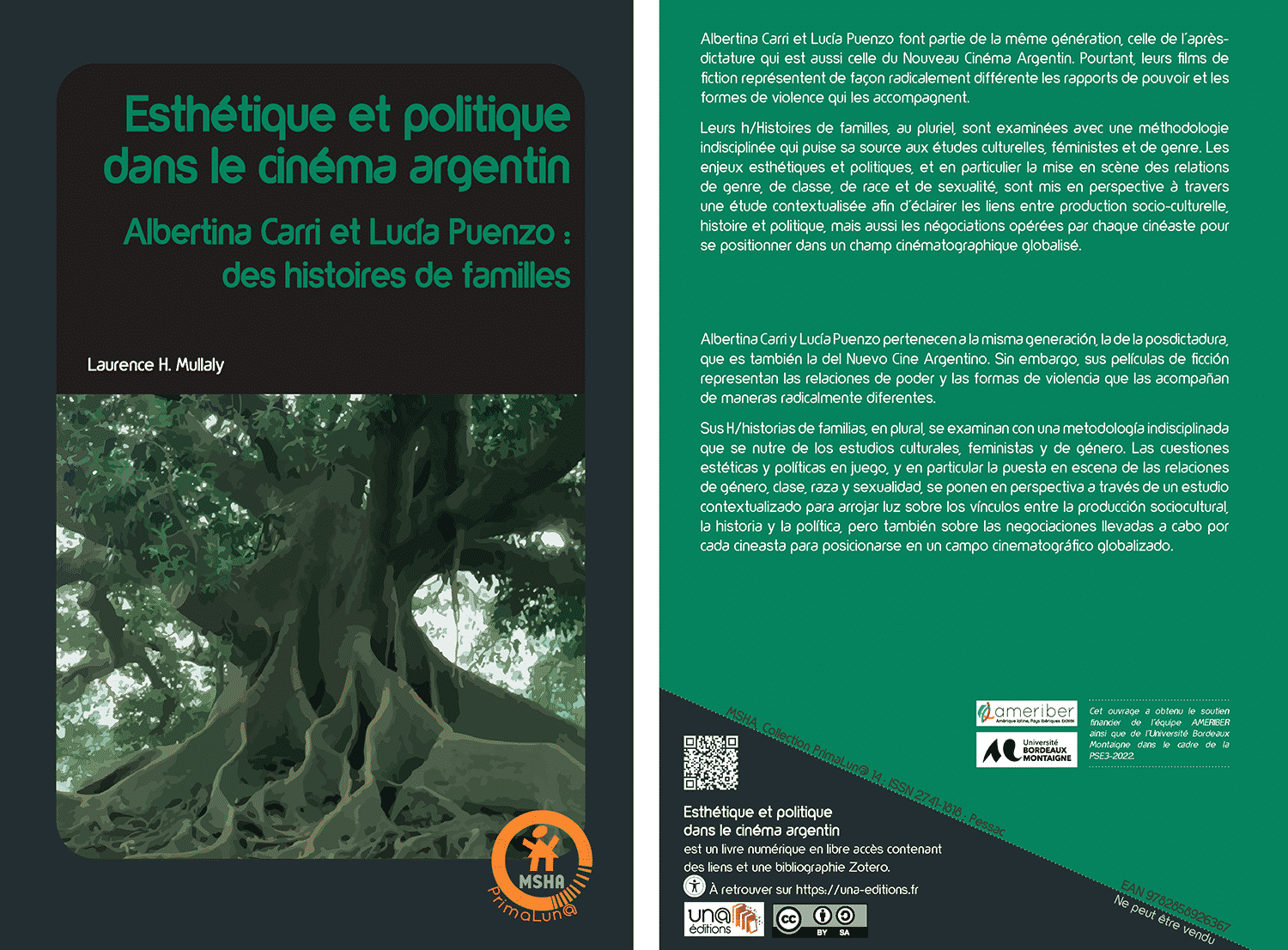Esthétique et politique dans le cinéma argentin
Albertina Carri et Lucía Puenzo : des histoires de familles

Download Url(s)
https://ressources.una-editions.fr/s/dr9D6McXLnmjR3WAuthor(s)
Mullaly, Laurence
Language
French; SpanishAbstract
Albertina Carri and Lucía Puenzo belong to the same generation, that of the post-dictatorship era, which is also that of the New Argentine Cinema. However, their fictional films represent power relationships and the forms of violence that accompany them in radically different ways. Their h/Family Stories in the Plural are examined with an undisciplined methodology that draws on cultural, feminist and gender studies. The aesthetic and political stakes, and in particular the staging of gender, class, race and sexuality relations, are put into perspective through a contextualized study in order to shed light on the links between socio-cultural production, history and politics, but also on the negotiations operated by each filmmaker in order to position herself in a globalized cinematographic field.
Keywords
Film Studies; Cultural studies; Latin American studies; Latinamerican cinema; Argentinean cinema; Memory studies; Sociocriticism; Gender studies; Feminist studies; Queer studies; Postcolonial studies; Intersectionality; Cultural Memory; Politics of memory; Postcolonial Feminism; Critical and Cultural theory; New Argentinean cinema; Postdictatorial memory; Human rights; sexual rigths; Lucía PuenzoWebshop link
https://una-editions.fr/esthet ...ISBN
9782858926343, 9782858926350Publication date and place
Pessac, 2022Imprint
Pôle Production Imprimé, Université Bordeaux MontaigneSeries
PrimaLun@, 14Classification
Films, cinema
Sociology and anthropology
Gender studies, gender groups

